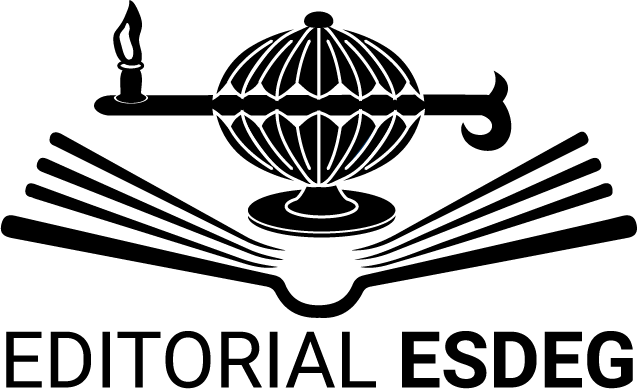Las amenazas híbridas contra las democracias abiertas
DOI:
https://doi.org/10.25062/1900-8325.277Palabras clave:
Amenazas híbridas, Sociedades democráticas, Democracias abiertas, Comunidad internacionalResumen
Con base en el análisis tanto de las vulnerabilidades propias de las democracias como de las características de los adversarios y del contexto híbrido específico, se busca distinguir entre dos tipos de amenazas híbridas. Por un lado, están las amenazas híbridas de carácter global, que afectan a las sociedades democráticas por igual, y cuya solución, por lo general, debe ser afrontada de modo colectivo por parte de toda la comunidad internacional o, al menos, por la mayoría de las sociedades de una región. Por otro lado, están las amenazas híbridas internas, que afectan de modo específico a una determinada sociedad, con base en sus características y su contexto.
Biografía del autor/a
José María Luque Juárez, Universidad Católica San Antonio de Murcia, España
Doctorando en Ciencias Sociales de la Universidad Católica San Antonio de Murcia, España. Graduado en Seguridad de la Universidad Antonio, de Nebrija, España. Licenciado en Criminología de la Universidad de Alicante, España. Oficial de Policía Local, responsable de la Unidad de Tráfico. Cruz al Mérito Policial Infanta María Teresa, otorgada por el Ministerio del Interior. Contacto: jmluque2@alu.ucam.edu
Referencias bibliográficas
Banasik, M. (2015). How to understand the hybrid war? Sicuritologia, (1)/2015. https://doi.org/10.5604/18984509.1184214
Belzunegui Eraso, A. (2017), El terrorismo islamista en Europa y el choque de civilizaciones. En Payá Santos, C.A. y Delgado Morán, J.J. (2017). Análisis de la Seguridad Internacional desde perspectivas académicas. Thomson Reuters Aranzadi.
Brotman, S. N. (2015). Multistakeholder Internet Governance: a pathway completed, the road ahead. Center for Technology Innovation at Brookings.
Büchs, M. (2007). New Governance in European Social Policy. The Open Method of Coordination. Palgrave Macmillan. https://doi.org/10.1057/9780230591509
Business Insider. (2018). Russia says UK minister's warning it could kill 'thousands' of Brits is like something from a Monty Python sketch. http://uk.businessinsider.com/russia-gavin-williamson-warning-is-like-monty-python-2018-1?IR=T
Comisión Europea. (2016). Comunicación conjunta al Parlamento europeo y al Consejo. Marco conjunto para contrarrestar las amenazas híbridas. La respuesta de la Unión Europea. Bruselas, 6.4.2016. https://eur-lex.europa.eu/legal-content/IT/TXT/HTML/?uri=CELEX:52016JC0018&from=EN
Conley, H. A. (2017). The modus operandi and toolbox of Russia and other autocracies for undermining democracies throughout the world. Statement Before the Senate Judiciary Committee, Subcommittee on Crime and Terrorism.
Crouch, C. (2004). Posdemocracia. Taurus.
Crouch, C. (2016). Society and social change in 21st century europe. Macmillan Education UK. https://doi.org/10.1057/978-1-137-27782-4
Cullen, P. J. y Reichborn-Kjennerud, E. (2017). Understanding hybrid warfare. https://assets.publishing.service.gov.uk/government/uploads/system/uploads/attachment_data/file/647776/dar_mcdc_hybrid_warfare.pdf
Delmas, M. A. y Young, O. R. (2009). Governance for the environment. New perspectives. Cambridge University Press. https://doi.org/10.1017/CBO9780511627170
European Union External Action Service (EEAS). (s. f.). Oficial page. https://eeas.europa.eu
EU y NATO. (2017). Common set of proposals for the implementation of the Joint Declaration by the President of the European Council, the President of the European Commission and the Secretary General of the North Atlantic Treaty Organization. https://www.hybridcoe.fi/wp-content/uploads/2017/08/Common-set-of-proposals-for-theimplementation-of-the-Joint-Declaration-2.pdf
EUvsSiSiNFO. (s.f.). Home page. https://euvsdisinfo.eu/
Fukuyama, F. (1992). The end of history and the last man. Free Press.
Kurbalija, J. (2014). An Introduction to Internet Governance. DiploFoundation.
Galán, C. (2018). Amenazas híbridas: nuevas herramientas para viejas aspiraciones. Documento de trabajo 20/2018. http://www.realinstitutoelcano.org/wps/portal/rielcano_es/contenido?WCM_GLOBAL_CONTEXT=/elcano/elcano_es/zonas_es/dt20-2018-galan-amenazas-hibridas-nuevas-herramientas-para-viejas-aspiraciones
Galeotti, M. (2017). Crimintern: How the Kremlin uses Russia's criminal networks in Europe. Policy Brief European Council on Foreign Relations.
Galeotti, M. (2017). Russia is practicing a form of geopolitical guerilla war against the West. Interview by O. Manea to Defense Matters.
Giles, K. (2015). Conclusion: Is Hybrid Warfare Really New? En Lasconjarias, G. y Larsen, J.A. (Eds.), Nato's Response to Hybrid Threats. NATO Defense College, Forum Paper 24.
Guzzini, S. y Neumann, I. B. (Eds.). (2012). The diffusion of power in global governance international political economy meets Foucault. Hampshire. https://doi.org/10.1057/9781137283559
Hoffman, F. G. (2009). Further thoughts on hybrid threats. Small Wars Journal. http://smallwarsjournal.com/blog/2009/03/further-thoughts-on-hybrid-thr/
Hoffman, F. G. (2007). Conflict in the 21st Century: The Rise of Hybrid Wars. Potomac Institute for Policy Studies. http://www.potomacinstitute.org/images/stories/publications/potomac_hybridwar_0108.pdf
Hybrid Coe. (2018). Italy joins Hybrid CoE. https://www.hybridcoe.fi/news/italy-joins-hybrid-coe/
Lasconjarias, G. y Larsen, J. A. (Eds.). (2015). Nato's Response to Hybrid Threats. NATO Defense College, Forum Paper 24.
Malcolm, J. (2008). Multi-Stakeholder Governance and the Internet Governance Forum. Terminus Press.
Mattis, J. N. (2008). USJFCOM Commander's Guidance for Effects-based Operations. Parameters, pp. 18-25.
Mejias, U. A. y Vokuev, N. E. (2017). Disinformation and the media: the case of Russia and Ukraine. Media, Culture & Society. https://doi.org/10.1177/0163443716686672
Mathiason, J. (2008). Internet Governance. The new frontier of global institution Routledge. https://doi.org/10.4324/9780203946084
Pomerantsev, P. (2014). How Putin is Reinventing Warfare. Foreign Policy. http://foreignpolicy.com/2014/05/05/how-putin-is-reinventing-warfare/
Raska, M. (2015). Hybrid warfare with Chinese characteristics. RSIS Commentaries. Reichborn-Kjennerud, E. y Cullen, P. (2016). What is hybrid warfare? Norwegian Institute of International Affairs, Policy Brief 1/2016. https://brage.bibsys.no/xmlui/bitstream/id/411369/NUPI_P
Riutort, B. (ed.). (2003). Conflictos bélicos y nuevo orden mundial. Editorial Icaria.
Rhodes, R. (2005). La nueva gobernanza: Gobernar sin gobierno. En Cerrillo, A. La Gobernanza Hoy: 10 textos de referencia (pp. 99- 122). Instituto Nacional de Administración Pública.
Ronczkowski, M. R. (2018). Terrorism and organized hate crime. Intelligence gathering, analysis and investigations. CRC Press. https://doi.org/10.4324/9781315203133
Rosenau, J. (1999). Towards an Ontology for Global Governance. En Hewson, M. y Sinclair, T.J. Approaches to global governance theory. State University of New York Press.
Saltos, M. y Muñoz, E. (2018). La gobernanza y gobierno abierto: análisis comparativo en relación con la administración pública. International Journal of engineering research and development 14(8), 16-21.
Sartori, G. (1995). Teoría de la democracia. El debate contemporáneo. Alianza Universidad
Segers, N. (2017). Practicing a whole-of-society approach to counter hybrid threats: A Trans-Atlantic Perspective. Geneva Centre for Security Policy. https://www.gcsp.ch/download/7120/165765
Treverton, G. (2018). Addressing hybrid threats. Centro de Excelencia sobre Amenazas Híbridas y Swedish Defense University. https://www.hybridcoe.fi/wp-content/uploads/2018/05/Treverton-AddressingHybridThreats.pdf
US Senate. (2018). Putin's asymmetric assault on democracy in Russia and Europe: Implications for U.S. national security. A minority staff report. Committee on Foreign Relations of the United State Senate.
Cómo citar
Descargas
Publicado
Número
Sección
Licencia
Derechos de autor 2019 Estudios en Seguridad y Defensa

Esta obra está bajo una licencia internacional Creative Commons Atribución-NoComercial-SinDerivadas 4.0.
| Estadísticas de artículo | |
|---|---|
| Vistas de resúmenes | |
| Vistas de PDF | |
| Descargas de PDF | |
| Vistas de HTML | |
| Otras vistas | |

















